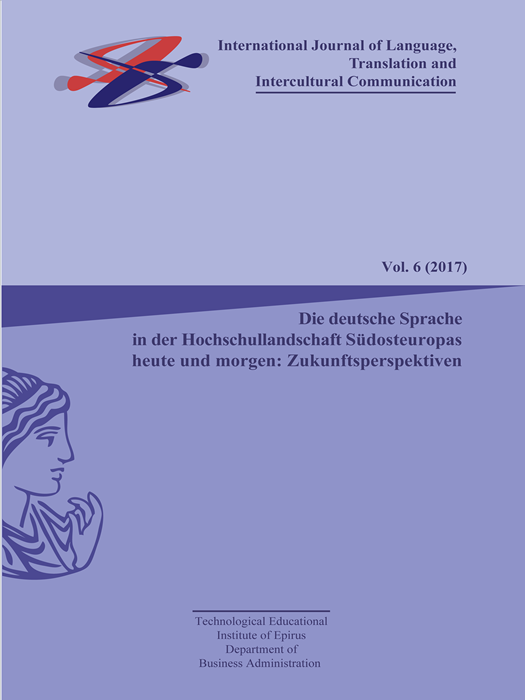Deutsch als Fremdsprache und Germanistikstudium in FYROM

Abstract
Gegenstand dieser Arbeit ist das Germanistikstudium in FYROM. Um ein umfassendes Verständnis der universitären Ausbildung von Deutschlehrenden, Übersetzern und Dolmetschern in diesem südosteuropäischen Land zu ermöglichen, wird zuerst ein Blick auf die allgemeinen Rahmenbedingungen des Erlernens des Deutschen als Fremdsprache im schulischen und im außerschulischen Bereich geworfen. Danach wird eine Übersicht über die Universitäten gegeben und die Struktur der Abteilungen für deutsche Sprache und Literatur und der Abteilungen für Übersetzen und Dolmetschen mit besonderer Berücksichtigung der Philologischen Fakultät „Blaže Koneski“, Universität „Sv. Kiril i Metodij“ zu Skopje dargestellt. Neben statistischen Daten zu den Studierendenzahlen und dem Lehrpersonal wird auf die inhaltliche Analyse der Curricula eingegangen. Abschließend werden die Perspektiven und die Herausforderungen für die Zukunft skizziert.
Article Details
- How to Cite
-
AVDIC, E. (2017). Deutsch als Fremdsprache und Germanistikstudium in FYROM. International Journal of Language, Translation and Intercultural Communication, 6, 6–19. https://doi.org/10.12681/ijltic.15557
- Section
- Articles

This work is licensed under a Creative Commons Attribution-NonCommercial-ShareAlike 4.0 International License.
Copyright Notice
Authors who publish with this journal agree to the following terms:
- Authors retain copyright and grant the journal right of first publication with the work simultaneously licensed under a Creative Commons Attribution License that allows others to share the work with an acknowledgement of the work's authorship and initial publication in this journal.
- Authors are able to enter into separate, additional contractual arrangements for the non-exclusive distribution of the journal's published version of the work (e.g., post it to an institutional repository or publish it in a book), with an acknowledgement of its initial publication in this journal.
- Authors are permitted and encouraged to post their work online (e.g., in institutional repositories or on their website) prior to and during the submission process, as it can lead to productive exchanges, as well as earlier and greater citation of published work (See The Effect of Open Access).


